Introduction
With the advancement of technology and the increasing use of electronic devices, the production of electronic waste has become a global problem. These wastes include old mobile phones, laptops, televisions, and other electronic equipment, which require proper recycling due to the presence of hazardous materials. Many of these devices contain valuable metals such as gold, silver, and copper, which can be reused if recycled properly. In this article, we will explore the complete process of electronic recycling, its importance, and the challenges ahead.
What is Electronic Waste?
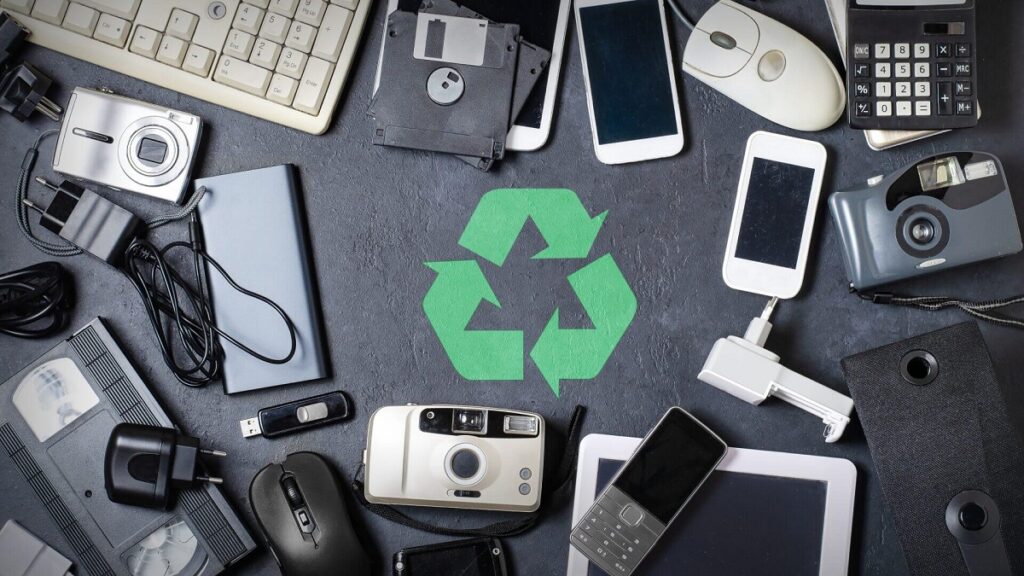
Why is Electronic Recycling Important?
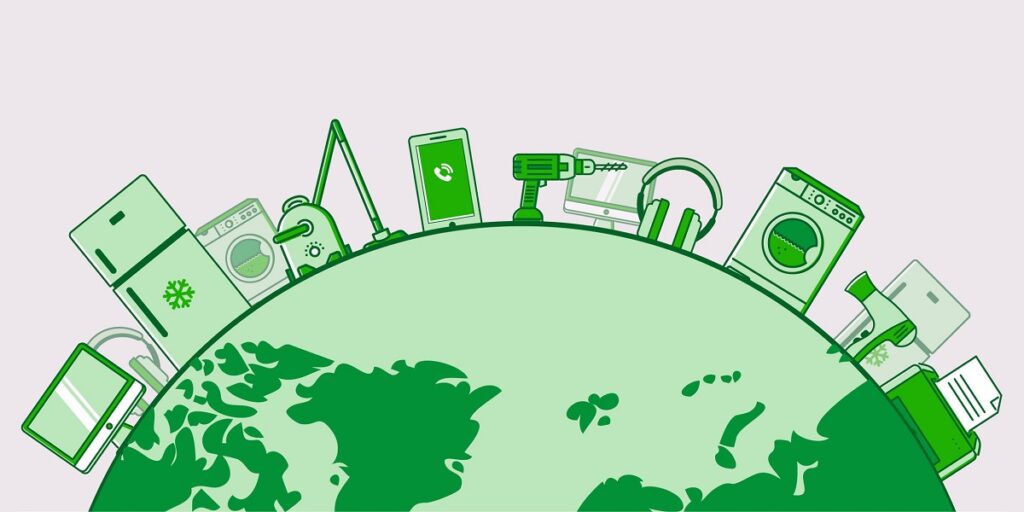
The Steps of Electronic Recycling
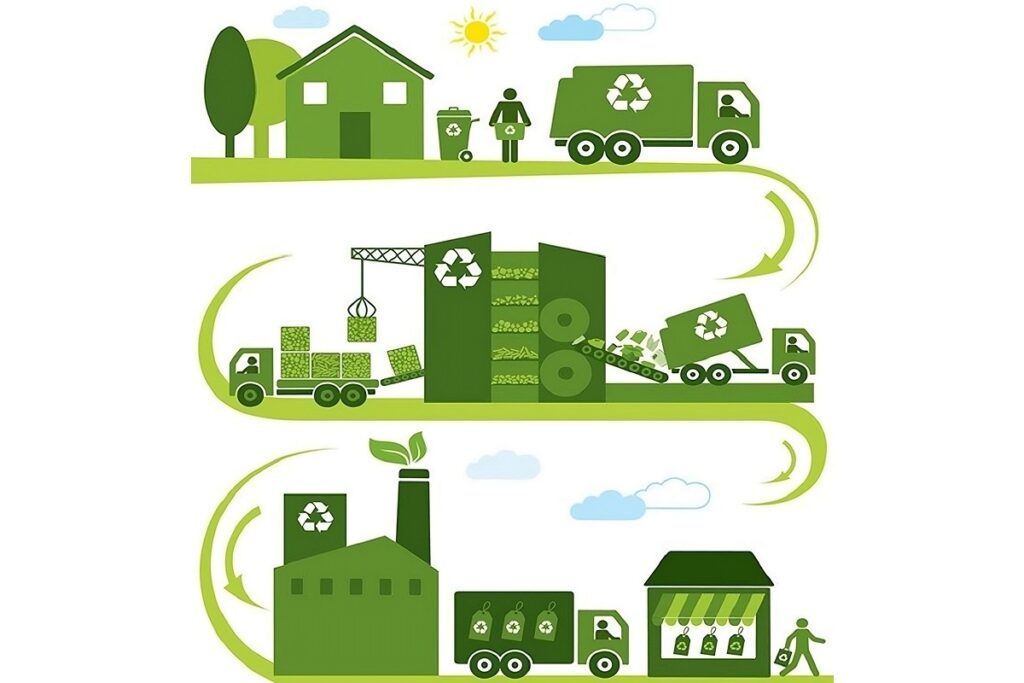 1. Collection and Initial Sorting
1. Collection and Initial SortingIn this stage, electronic waste is collected through recycling centers, collection stores, or government programs. Initial sorting involves separating batteries, plastics, and metal parts. This is typically carried out by specialized companies that are responsible for categorizing the waste based on the type and value of the materials it contains.
2. Manual and Mechanical Separation
Different components such as screens, circuit boards, and cables are separated from each other. This process involves both manual methods and mechanical devices, such as industrial shredders. The separation helps recover raw materials and reduces the potential harm to the environment.
3. Recovery of Precious Metals
In this stage, precious metals such as gold, silver, copper, and palladium are extracted from electronic circuit boards. These metals are then reused in various industries. Methods for metal extraction include the use of chemicals, metal smelting, and physical techniques, each with its own advantages and disadvantages.
4. Recycling of Plastics and Other Materials
The plastics used in electronic devices are recycled and repurposed to create new products. Additionally, glass and ceramic parts are processed and recycled. In this process, plastics are transformed into granules that can be used in other industries.
5. Hazardous Waste Management
Some components of electronic waste contain toxic substances that require special disposal. These materials include lead, mercury, and cadmium, which can harm the environment if not properly managed. For this reason, many countries have strict regulations for the disposal of these materials.
Challenges and Opportunities in Electronic Recycling
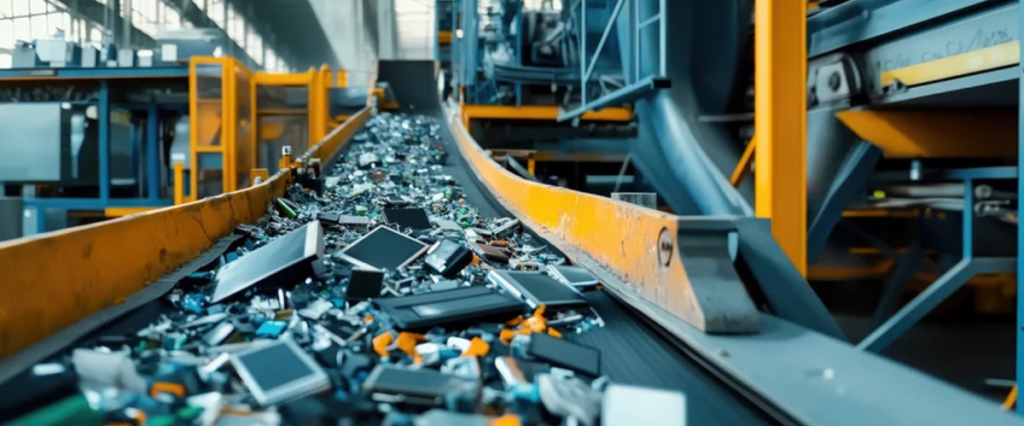 Challenges:
Challenges:
- Lack of public awareness about the importance of electronic waste recycling
- High costs of the recycling process
- Lack of adequate infrastructure for collecting electronic waste
- Lack of comprehensive laws and inadequate enforcement of regulations in some countries
Opportunities:
- Development of innovative technologies for better and more efficient recycling
- Increase in public awareness and the creation of educational programs
- Investment in recycling industries to create jobs and reduce environmental harm
- Creation of incentive programs for delivering electronic waste to recycling centers
- Collaboration between governments and private companies to improve the recycling process
The Role of Users in Electronic Waste Recycling
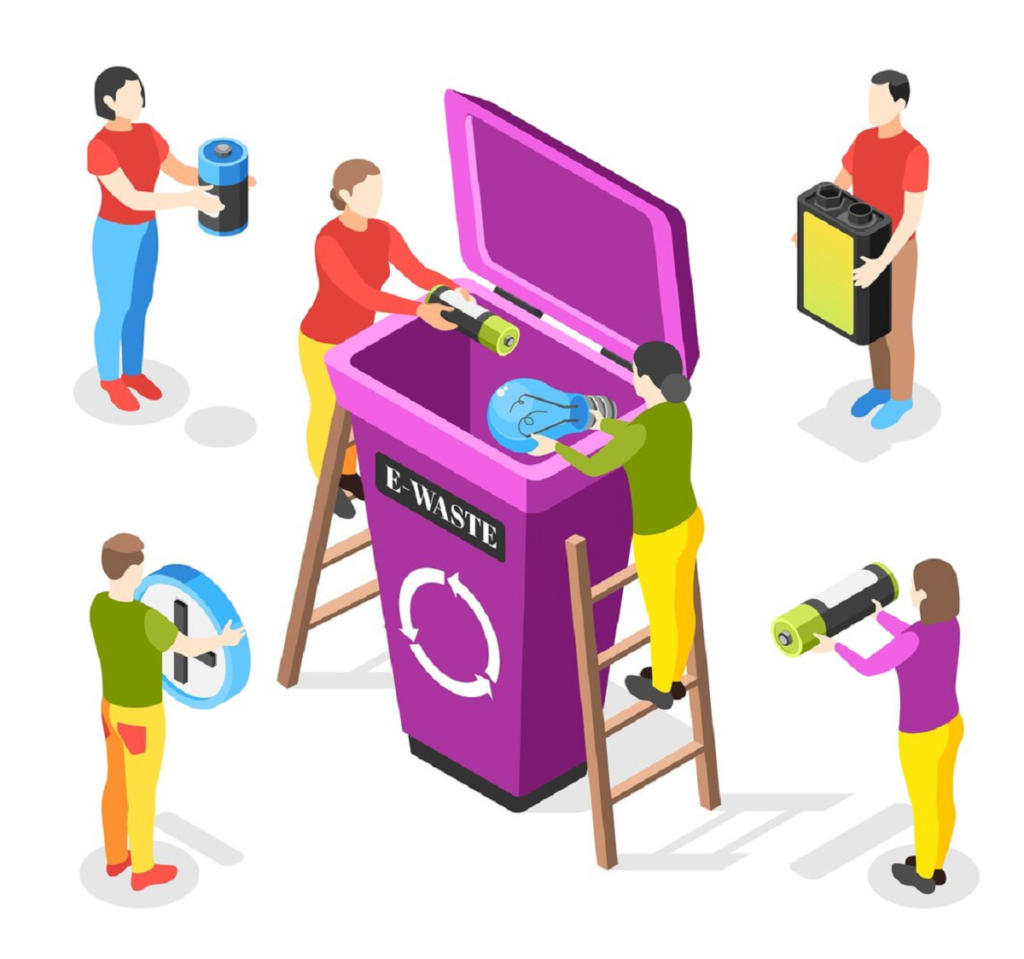
Each individual can contribute through simple actions such as:
- Delivering their old devices to certified recycling centers
- Reducing consumption and purchasing devices with longer lifespans
- Repairing and reusing electronic devices instead of discarding them
- Informing others about the importance of electronic recycling
Conculsion
Electronic recycling is one of the most essential actions that must be taken to preserve the environment and natural resources. Every individual can contribute by properly managing electronic waste and delivering it to recycling centers, thus helping reduce pollution and protect valuable resources. Governments and industries can also reduce the negative impacts of electronic waste and create a more sustainable economy by investing in this area.
With the spread of awareness and the implementation of appropriate policies, we can have a greener and more sustainable world. Let’s start today and take more responsibility for our electronic waste.
